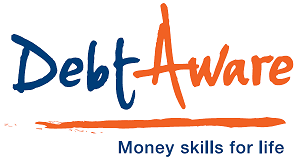Curious about our financial education programme?
As the educational arm of a debt advice charity (Debt Advice Foundation), we are all too aware of the difficulties inflicted by problem debt on individuals and their families.
We believe that financial education and the ability to manage money is one of the most important life skills we can teach our children and should be taught at the earliest opportunity.
Financial education is not statutory to the primary school curriculum. However, we believe that the process of educating children in financial capability should begin by at least the age of nine, in primary year 5. Attitudes and life skills are being formed by this age and we know that children are aware of money at an early age.
Research by the Money Advice Service showed that more than four in five teachers believe that financial education must begin in primary school, not secondary school, to be most effective.
How does the programme work?
DebtAware is a two-year, six-module financial capability programme aimed at primary school children and in which over 10,000 primary school children are currently enrolled in.
When we originally developed the programme we worked with local secondary school children to create all the teaching resources used, such as the Money Diaries, which are printed books written and illustrated by the pupils containing all different examples of good and bad money management and the attitudes surrounding those decisions.
The core lesson in each module is delivered by the DebtAware team, training a small group of children in each class to become Money Mentors. They then take the lead on three tasks, acting as teachers to their fellow pupils and marking their work.
What do we cover in our classes?
Year one focuses on the difference between wants and needs, budgeting, the different payment and credit options available and the importance of savings. Year two is more holistic, emphasising the impact of career choices, wages, pensions and financial risks like gambling and debt.
